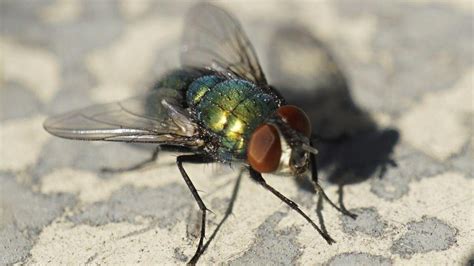Flies are common insects that can be found in almost any environment. They are known for their ability to transmit diseases, but they also have a number of other interesting characteristics. One of these characteristics is their sense of smell.

How Do Flies Smell?
Flies have a pair of antennae on their heads that are used for smelling. Each antenna is covered in tiny hairs that are sensitive to different scents. When a fly smells something, the hairs on its antennae send signals to its brain. The brain then interprets these signals and determines what the fly is smelling.
Flies are able to smell a wide range of scents, including food, mates, and predators. They use their sense of smell to find food, attract mates, and avoid danger.
How Sensitive Is a Fly’s Sense of Smell?
Flies have a very sensitive sense of smell. They are able to detect scents that are much weaker than humans can. In fact, flies are able to smell some scents that humans cannot even detect.
The sensitivity of a fly’s sense of smell is important for its survival. Flies need to be able to find food and mates in order to reproduce. They also need to be able to avoid predators in order to stay alive. Their sense of smell helps them to do all of these things.
What Are Some Examples of Scents That Flies Can Smell?
Flies are able to smell a wide range of scents, but there are some scents that they are particularly attracted to. These scents include:
- Food: Flies are attracted to the smell of food, especially sweet foods. They are also attracted to the smell of decaying organic matter.
- Mates: Flies are attracted to the smell of mates. They use their sense of smell to find mates that are compatible with them.
- Predators: Flies are able to smell predators, such as spiders and wasps. They use their sense of smell to avoid these predators.
How Do Flies Use Their Sense of Smell?
Flies use their sense of smell for a variety of purposes, including:
- Finding food: Flies use their sense of smell to find food. They are able to detect the smell of food from a long distance away.
- Attracting mates: Flies use their sense of smell to attract mates. They release pheromones that attract mates of the opposite sex.
- Avoiding predators: Flies use their sense of smell to avoid predators. They are able to detect the smell of predators from a long distance away.
- Laying eggs: Flies use their sense of smell to lay eggs. They are able to find the right place to lay their eggs by using their sense of smell.
Conclusion
Flies have a very sensitive sense of smell that they use for a variety of purposes. They use their sense of smell to find food, attract mates, avoid predators, and lay eggs. The sense of smell is an important part of a fly’s life and helps them to survive and reproduce.
Additional Information
Here are some additional facts about a fly’s sense of smell:
- Flies have about 1,000 olfactory receptors, which are located on their antennae.
- Flies can detect scents that are up to 100 times weaker than humans can.
- Flies use their sense of smell to communicate with each other. They release pheromones that attract mates and repel predators.
- Flies’ sense of smell is affected by temperature and humidity.
FAQs
Q: Can flies smell blood?
A: Yes, flies can smell blood. They are attracted to the smell of blood because it indicates that there is a potential food source nearby.
Q: Can flies smell through walls?
A: No, flies cannot smell through walls. However, they can smell through small cracks and holes in walls.
Q: How far away can flies smell?
A: Flies can smell food from up to 10 miles away. However, the distance that they can smell depends on the type of scent and the weather conditions.
Q: What is the most common scent that attracts flies?
A: The most common scent that attracts flies is the smell of decaying organic matter. This includes things like rotting food, dead animals, and manure.
**Q: Are there any ways to keep flies away?**
A: There are a number of ways to keep flies away, including:
- Keep your home clean and free of clutter.
- Dispose of garbage properly.
- Cover food and drinks.
- Use fly traps or repellents.
